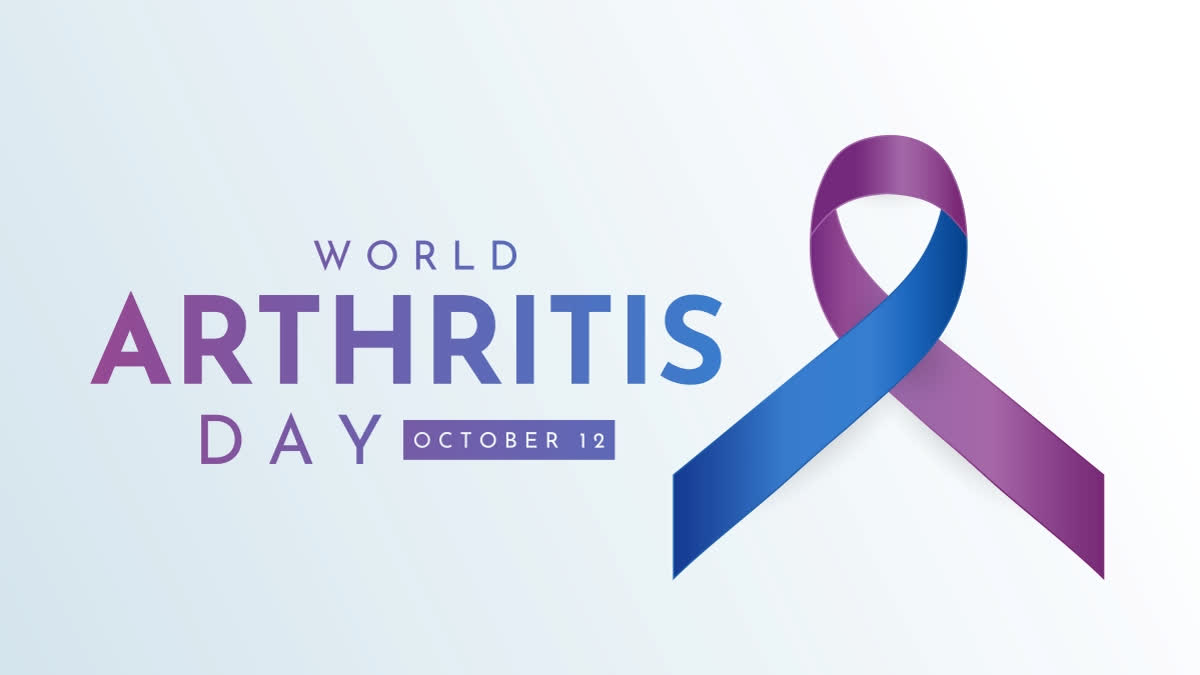Hyderabad: World Arthritis Day is observed on October 12 annually to serve as a crucial global health awareness event shedding light on rheumatic and musculoskeletal diseases (RMDs).
History- The origins of World Arthritis Day can be traced back to 1996 when Arthritis and Rheumatism International (ARI), a network of arthritis patient organisations, initiated this global campaign. Over the years, World Arthritis Day evolved from a single event into a global phenomenon. Countries around the world joined hands to observe the day, organise awareness programs, and advocate for those affected by arthritis.
The primary goal of World Arthritis Day is to raise awareness about arthritis, dispelling myths and misconceptions. It emphasises that arthritis can affect people of all ages, reducing the stigma often associated with the condition. The day advocates for early diagnosis and intervention, empowering individuals to access appropriate treatments and manage symptoms effectively.
World Arthritis Day also emphasises community building, bringing together healthcare professionals, patient organisations, caregivers, and those affected by arthritis. It fosters a sense of community and encourages collaboration in the fight against arthritis. It has also played a vital role in advocating for research into better treatments and ultimately, a cure for arthritis.
Theme- In 2023, the theme of World Arthritis Day is "Joint Health for All," to underscore the significance of maintaining healthy joints for everyone. Arthritis, characterised by inflammation in the joints and surrounding tissues, leads to joint pain and stiffness. With over 100 types, the most prevalent are osteoarthritis and rheumatoid arthritis.
Types of Arthritis- There are over 100 types of arthritis, however, the most common types of arthritis are:
- Osteoarthritis: This is one of the most common types of arthritis, associated with wear and tear on joints.
- Rheumatoid arthritis: It is an autoimmune disease which affects the joints, causing inflammation and pain.
- Psoriatic Arthritis: This type of arthritis occurs among some people struggling with psoriasis, affecting joints and skin.
- Gout: It results in the buildup of uric acid crystals in joints which cause sudden and severe pain.
Significance- Arthritis lacks a one-size-fits-all treatment; the approach varies depending on the type. Recognising signs and symptoms early is crucial for obtaining the right treatment. World Arthritis Day plays a vital role in motivating individuals, the medical community, and governments globally to engage in awareness campaigns, thereby creating improved opportunities for those affected.
Important Facts related to Arthritis-
- Older women are found to be more susceptible to suffering from arthritis.
- Arthritis can also affect children, juvenile rheumatoid arthritis being the most common one.
- Many people believe that arthritis causes fewer problems in warm climates which is not true.
- Arthritis not only affects humans but every being with joints in their body can be affected.
- Arthritis is one of the oldest diseases, found in the remains of people living over 500,000 years ago.
- According to some researchers in Brazil, bee sting venom can reduce the symptoms of rheumatoid arthritis.
- India women are more prone to getting arthritis than Indian men.
- Affects people of all age group.
Self-care tips to manage joint pain due to arthritis-
- Embrace a Balanced Diet: Include anti-inflammatory foods like green leafy vegetables, berries, ginger, nuts, legumes, and fiber.
- Prioritize Nutrient Intake: Ensure sufficient vitamin D and calcium for joint health.
- Maintain Ideal Weight: Carrying excess body weight stresses joints, especially weight-bearing ones.
- Regular Physical Activity: Engage in low-impact exercises such as swimming, walking, and cycling to reduce joint stress.
- Incorporate Mind-Body Practices: Practice yoga and meditation to promote muscle relaxation.
- Quit Smoking: Kick the habit to support overall joint and musculoskeletal health
Future of Arthritis- As we look to the future, the burden of arthritis is expected to rise significantly. By 2040, an estimated 78.4 million adults aged 18 years and older will have doctor-diagnosed arthritis. Osteoarthritis, a prevalent form, is expected to affect nearly 1 billion people by 2050. Obesity, a major contributor to osteoarthritis, continues to worsen this burden.
Also read- Physiotherapy can also help prevent arthritis: Experts



